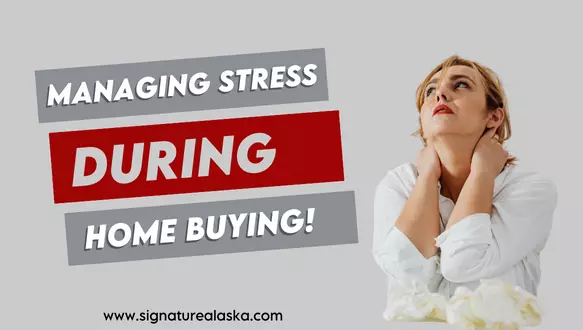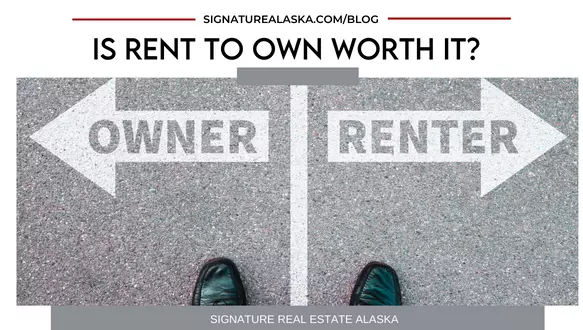
Market - A Quick Guide to Understanding the Housing Market
You hear it on the news all the time: "It's a buyer's market," "It's a seller's market," or "The housing market is on the rebound." And while you probably get the gist of what these folks are talking about, having a deeper understanding of the housing market and how it works can help you immensely during the homebuying or selling process. Let's start with the basics The housing market refers to the general market of houses being bought and sold between buyers and sellers. These houses are either bought or sold directly by owners or indirectly through brokers. Like any market, the housing market is governed by the law of supply and demand. When demand is high and supply is low, the market appreciates. When demand is low and supply is high, the market depreciates. How inventory affects the value In the real estate industry, we think of supply and demand in terms of available inventory. You can measure inventory by answering the following question: At the current pace of sales, how long would it take all of the houses available on the market to be sold? As inventories rise, home prices tend to decline. This is because as inventories rise, so does the competition amongst sellers, which drives prices down. The difference between a buyer's and a seller's market A buyer's market is associated with longer inventory periods. As homes sit on the market for longer and longer, sellers become more and more flexible with their prices. This is great for buyers, as they usually end up getting a good deal (hence the term "buyer's market"). In contrast, a seller's market is associated with shorter inventory periods. Homes sell rapidly, giving sellers a lot of pricing power (hence, it's a "seller's market"). Keep in mind that as with other markets, the housing market is cyclical: There are periods of rapid appreciation followed by periods of stabilization or depreciation. By studying the market, you can learn to foresee such trends.

11 Steps To Downsizing Your Home
Nothing lasts forever -- including a home where you raised a family or lived most of your working life. And it's a fact of life that suddenly, a place that was perfect for you a decade or two ago might start to feel cavernous and empty (or just contain more square footage than you really want to clean regularly).If you're starting to dream about trading in your rambling old house for a smaller cottage or new condo, then it's probably time to seriously consider downsizing from your current home. Before you start shopping and put your home on the market, though, there are a few things you need to think about and discuss with any family members who'll be making the journey with you. Consider your finances It's tempting to look up your home on a website like Zillow or Redfin and revel in how much money it's worth today. So finances might not be top-of-mind when you're thinking about downsizing -- you may believe that you're guaranteed to save money, but that's not always the case.Mortgage rates have been rising steadily, and if you bought or refinanced your home during the years of historic low rates, then you might get a bit of sticker-shock at how much you'll pay in mortgage interest over the life of the loan. And even as your home's value has increased, others have, too -- so unless you're also perusing the type of home where you'd ideally move after your downsizing, you might not be prepared to spend what's necessary on a new place. Also, hopefully your credit score has been maintained or improved since you moved in, but if not, that's something else you'll have to consider.Depending on where you want to move, there might also be homeowners' association (HOA) restrictions and dues, new taxes to consider if you're changing counties or moving to a new state, and a number of other fees and expenses that haven't yet factored into your accounting. If you have a financial advisor, now would be a good time to talk to that person about downsizing and get some background on what it would mean for you financially. Think about space A lot of people really love the idea of living in a tiny home, but in practice, it's not always as fun as it sounds. You might be well aware that the amount of house you have is in excess of what you really need, but if you don't think hard about the right amount of space for you at this time in your life, then wherever you land might also be too big ... or too small, on the other end of the spectrum.Talk to any family members coming with you, if applicable, about what your needs are right now. If you aren't sure what might feel "right," then visit some open houses for smaller homes (warning: you might be tempted to buy one -- resist!) or, if there's an IKEA handy, head there for an afternoon and walk through some of the showroom examples. Wherever you go, bring a notebook or use an app on your phone to record the square footage of the home and a few sentences or words to help you remember whether you felt like it was too big, too small -- or just right.In addition to interior space, you'll want to think about lot size. Do you really want an acre of lawn to maintain, or on the flip side, will you miss having a bit of grass to mow? See if you and any moving partners can come to some kind of resolution about the ideal space guidelines for this new leg of your life. Ask yourself: Can you change enough to stay? Another option to consider while you're examining your finances is the opposite of downsizing: remodeling and staying put. It's an increasingly popular solution to the too-much-house problem, and it's possible that it could be right for you.Maybe you can convert one floor of your home into a small unit and rent it out, for example. Maybe you need wider stairs, or maybe the bathroom needs an update and some adjustments. If it's not really the space that's the issue, but instead it's the features of the home, then it's very possible you might be able to get away with updating and revamping some things and then staying where you are.Talk to a contractor or possibly even an architect (depending on the scope of changes) about what to do and get a ballpark figure for what it might cost, realizing that it's likely to go over-budget. Then decide whether a big change might be enough to keep you where you are. Decide where to go If you're bent on moving out of your current place, then the obvious next question that everyone is going to ask -- from your relatives to your real estate agent -- is "where are you going?"Maybe you know you want to stay in the same general area, but you want to be a bit closer to amenities like the park or the grocery store. Or perhaps you have it in your head to shift gears entirely and move to a different city or state, or even a different country.It's not enough to just want a change -- you need to have a goal, a reason for the change, because moving is never fun, and downsizing can be especially taxing. Think about where you've always wanted to live and why, and then decide where you're going to plant your roots for the next set of life adventures. Factor in cost-of-living changes While you're thinking about your finances, it's a good idea to also consider whether you'll be accruing any additional cost-of-living changes. This is best done after you know where you'll be moving -- cost of living might not fluctuate all that much within a city or a county, but if you're moving to a different state, or from the suburbs to the city or the city to the suburbs, then there might be some additional costs that you're not used to and therefore aren't considering.It might not be a bad idea to talk to a real estate agent or people you know who live where you want to move. Ask them how much groceries and gas cost, what they pay for utilities and parking, and whether they can share any tips or insight into other costs of living. You might discover that it costs an arm and a leg to call up a ride-share car on your phone like you're used to doing, but that there's a reasonably priced train that's very accessible -- so increased cost of living items might not be dealbreakers, but they're still something to understand and consider. Find a place to land Now that you've got an idea of where you're going and how much it will cost, it's a good idea to start looking more specifically at your housing options. Even if you don't buy a house or condo immediately, you'll want to familiarize yourself with how big the homes are in the area where you want to move, and to get a ballpark feel for how much space you'll have to work with in the new place. If it's possible, you may also want to get specific measurements for a typical room (including floor-to-ceiling height).This way you'll have what you need to evaluate all your stuff -- your furniture, your kitchenware, even your clothes -- and to start making the tough decisions about what's going to stay and what has to go. Replacing and shedding furniture You probably already know that you're going to be getting rid of some furniture -- they don't call it "downsizing" because you're adding new items. But knowing exactly what to bring and what to purge can be difficult, especially if you love a particular item of furniture but can't see its future in your new home.There are companies that can help you with this exercise (such as everythingbutthehouse.com), and if you decide to go solo, there are also lots of tips on how to furnish a smaller space. First, prioritize your own current furniture by considering its size, its function, and its daily usage. Eliminate any duplicate items -- for example, the ten-person dining room set is probably unnecessary if you have a four-person dinette that's tucked in the breakfast nook.It might also be worth considering replacing some of your furniture -- a bed with drawers underneath the mattress platform could be a better investment than the luxurious but space-hogging four-poster. Make sure you're taking measurements of anything you buy and comparing it against what you know about your new place so that you don't wind up cramming way too much furniture into a smaller space. Getting rid of excess baggage Apart from furniture, you'll need to think about all your stuff, the books and decorations and clothes and kitchenware and appliances. The kitchen is another good place to demand multitasking from your gadgets, especially if you'll be losing cabinet space in the move. There are new appliances that might be a worthwhile investment because they'll help you get rid of two or three existing appliances, so do a little bit of research before you start making serious decisions there.This is probably the hardest step, all in all, because there's a lot that you might want to keep but just doesn't make sense with your new lifestyle. Instead of considering it a loss, try to think of the baggage-shedding as an opportunity to free yourself from these possessions and find them a new home where they'll be more appreciated and loved. Understand your storage options Some condos have a storage closet where you can stash overflow, and if you're moving into a new house, there might even be a garage, basement, or attic where your boxes can lurk. Whatever the case, think about all your options -- including renting a storage unit -- and make sure you factor in anything that you currently have in storage and aren't willing to let go of just yet.Speaking of renting a storage unit, you should know this: It's a popular option when downsizing, but if you find yourself with a giant stash of things that you're going to store, ask yourself how likely it is that you'll ever go to visit that stuff, pull it out, look at it, or enjoy it in any way. The idea of just putting everything away but still possessing it can be very seductive, but realistically, most of the time you're just creating another headache for yourself and potentially for the executors of your estate. If you like it, but not enough to keep it in the house with you, then maybe it's time to say goodbye. Organize, organize, organize Chaos is part of any move, and downsizing can be especially fraught because there are more moving parts to the process. The more organized you can be at every level, the better this move will go.Make sure your finances are well-organized to start with, then start applying that focus and detail-orientation to everything else. If you can, sometimes it's easiest to move yourself out first with anything you know you're taking with you, then ask your family and friends to help themselves to whatever they might want. After that, you can sell the rest -- either in bulk to a company or service like everythingbutthehouse.com or piecemeal, depending on your preferences -- or donate it; there are many donation services that will come pick things up from your house so you don't have to cart them into a donation center."A place for everything and everything in its place" is an aspirational goal for many of us, but when you're downsizing, try to make it your (at least temporary) mantra. It will guide you through the downsizing process and help keep you organized to boot. Make the move When it's finally time to execute, it's very common for downsizers to be seized with second thoughts. Will you like your new home as much as your old one? Will you miss your things too much to fathom? What if you're making a huge mistake? What if you change your mind?The good news is that humans, despite hating the idea of change, are highly adaptable creatures. Make a list of all the things that you don't like about your about-to-be-downsized house and lifestyle, and refer to it often throughout the process. You can even pull it back up in the new place to remind yourself why you moved if something is frustrating or annoying you. But within a few weeks or months, it'll be hard to imagine how you ever managed before downsizing, so in the meantime, trust the process and find a solid team that can help you get from your oversized starting line to the just-right finishing line.

The 4 Most Important Questions You Need to Ask Before Selling Your Home
There comes a time in every home owner's life when he or she realizes: “I am not the same person I was when I bought this place.” Maybe your lifestyle or your family configuration has changed, or maybe the house just isn’t as appealing as it was when you signed that ream of paperwork on closing day. If you’re thinking about moving on, then there are a few questions you need to ask yourself before you take the plunge and list the house. When you can answer these questions, you’ll know you’re in the right place emotionally and financially to move on to your next space. What is my home really worth? You can find almost anything on the internet, and that includes an estimated value of your home. How convenient! But before you try to figure out how much your house is worth on your own, take a deep breath and resolve to remember one thing: “I shouldn’t believe everything I read on the internet.” It’s possible that an automated estimate is going to be spot-on, but those algorithms depend on numbers that might or might not be accurate, like the condition of your property, the square footage, any features or amenities you’ve added (or removed), and recent sales of properties nearby that could be comparable to your own home. A better way to figure out how much your home might be worth is to look at your most recent property tax bill. Your property taxes change with the value of your home, so if you look at your property tax rate from last year and figure out your state’s assessment rate (usually not quite the total value of your home — it’s somewhere between 80 percent and 90 percent of the home’s total value, depending on the state), that can help you get a little bit closer in terms of pinpointing price. You can also talk to a professional about your home’s value; a real estate professional who sells properties in your neighborhood every day is going to be able to give you a more accurate idea of how much your particular, specific home might capture on the current market. And a real estate professional can also explain what you can do to your home to help inch that number upward a little bit. Then you can make the call as to whether or not you want to make any upgrades or take the estimated price as-is. Which leads to the next question … How can I sell at the highest price possible? When you’re selling anything, you want to get fair market value for the item you’re releasing, and that’s exponentially truer for your house, which is probably the biggest purchase you’ve ever made. If you know your neighbor’s house sold for ten figures more than the highest estimate you’ve been able to find for your own home, that can be a tough reality to swallow. But this is where real estate professionals really earn their keep — they can explain why that house was so desirable (maybe if you’re honest with yourself, you can admit that your neighbor’s view is much nicer than yours, for example), and they can also show you where you do have some room for (price) improvement. If you’re not ready to call in a professional, then start with things that can spruce up almost any dwelling. One of the first and most important steps to selling your home for top dollar is to get the place deep-cleaned from floor to ceiling, including washing the windows and scrubbing down all of your kitchen appliances. Start by attacking the clutter; it’s much easier to clean a room that doesn’t have a lot of furniture or objects in it, so even if you’re hoping to move up to make space for all your stuff, it’s a good idea to start cleaning out the items that you know you don’t want to move with you. If there’s still a lot left, consider a shed or an off-site storage facility where you can stash things without packing it all in your closets (where buyers are most definitely going to be looking). If you have a junk drawer or even a “junk room,” now is the time to start corralling that beast. Then get cleaning. There’s no detail too small — make sure every room in the house sparkles to the best of your ability and smells fresh and aired-out. There may be quite a few additional projects you could tackle to increase your home’s value, such as adding a deck, remodeling the kitchen, or even adding entire rooms in some cases. Those are good opportunities to discuss with a real estate professional, who can share feedback about whether the project is going to be worth the eventual return on investment when you sell the home — and what projects will net you more money for your property. Real Estate Professionals also know stagers and home photographers. When a buyer falls in love with your home, it’s most likely going to be from an online listing, so your listing photos should be as high-quality as possible — that might mean bringing in a stager to spruce up the rooms and a photographer to capture the results. How long will my home be on the market? No one can predict the future, but experts who work in the industry can usually come close. If you haven’t called an agent yet, you might need to in order to get the information you’ll need to answer this question. Ultimately, it depends on what the housing market is like in your area, but there are a lot of anomalies within a housing market — even in markets that seem red-hot, sometimes sellers make a mistake and overprice a home that then languishes for weeks or even months longer than more realistically priced homes. And there are some neighborhoods or even specific blocks where buyers seem to be willing to do just about anything to get their foot in the door — and other geographies where they might need to be lured in a little more aggressively. The number of days that homes stay on the market gets shorter and shorter as housing heats up, but that number is absolutely contingent on the initial list price. Homes that need to reduce their prices to attract qualified buyers will remain on the market significantly longer than homes priced competitively from the start. It’s really important to get the initial list price right if you’d like the home to sell quickly. (And remember: The longer that house takes to sell, the longer you as the seller will be responsible for keeping it in showing condition for buyers — seven days a week.) So even in markets where houses seem to be flying off the shelves, it’s smart to talk to someone who sees those sales up close and personal every day. They can give you an educated estimate about the amount of time it should take your property to get from list to close. How can a Real Estate Professional help? Selling a home is a huge life event that encroaches on just about every aspect of your existence, from your meals to your work schedule to how often you do laundry and vacuum up pet hair. It can be an incredibly stressful time, and a real estate professional is a personal advisor that can help sellers make the best decisions possible while keeping track of all the details. A good real estate professional will help you find the best price for your home, list it for you on the MLS, and handle all the marketing — from photos to open houses to glossy brochures to Facebook ads. A good agent can manage your showing schedule for buyers who want personal tours and can help you decide which offer to accept if you happen to receive more than one … and a licensed real estate professional is absolutely essential during the negotiation process, especially if the buyer is making demands that the seller isn’t prepared to address. A knowledgeable real estate professional will also know the best plumbers, electricians, and general contractors in the area who might be able to make any repairs or changes to the home before it closes. He or she can manage the transaction timeline, alerting you when an inspection or appraisal is about to happen and keeping you in the loop regarding financing and every other aspect of the deal. A good real estate professional can also help you do all of this while you’re simultaneously looking for a new place to live and can help you manage that, too — including what to do if you find a home before your current house sells. And depending on your personal situation, there are local real estate professionals who specialize in divorce, estate sales, and other tricky life events involving a home transaction. Selling a home is as simple as listing it on the MLS and waiting for an appropriate offer to come in — but there’s so much more involved that most sellers can’t handle it on their own. Answering these questions will get you a head start, but don’t skip talking to an agent or three when you’re actually ready to list that home; they’ll be able to point out what you didn’t know you were missing.
Categories
Recent Posts










